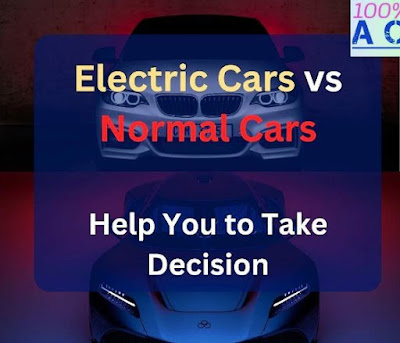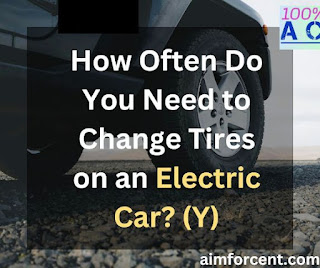How Long Does a Solar Fountain Last?
Solar fountains generally last up to 5 years, depending on the brand, quality, material, and many other factors. I’m going to cover all these today! Moreover, it is a trending product because solar fountains offer both functionality and aesthetic appeal. Solar fountains rely on the power of the sun to operate, eliminating the need for electricity or batteries.
Factors that Determine the Lifespan of Solar Fountains
Some of the key factors that can affect the longevity of a solar fountain are:
Quality of Solar Panels
Branded products with high-quality solar panels will last longer and more efficiently convert sunlight into energy. I would recommend always going for branded products by investing a few more bucks. It’s worth investing in!
Quality of Fountain Pump
The fountain pump is responsible for moving the water, and it also has an impact on the fountain’s lifespan. A high-quality pump will last longer and be less prone to breaking down. Fountain pumps and solar panels are key fountain elements, so you should not compromise on the quality.
Material of the Solar Water Fountains
Another factor that can affect the lifespan of a solar fountain is the materials used in its construction. Fountains made from durable materials such as stainless steel or ceramic are less likely to deteriorate or corrode over time and last longer.
Do You Need Regular Maintenance to Increase the Lifespan of Solar Fountains?
Do you know regular maintenance can also play a role in extending the lifespan of a solar fountain? It includes cleaning the fountain and its components and ensuring that the solar panels remain free of debris and are properly aligned to maximise exposure to sunlight.
A solar fountain can last anywhere from a few years to over a decade, depending on the quality of the fountain, and materials used in its construction, and the level of maintenance it receives. With proper care and maintenance, a solar fountain can be a beautiful and functional addition to any outdoor space for many years to come.
Is a Solar Fountain Reliable?
Solar fountains can be a reliable option for outdoor water features if you choose a high-quality product and maintain it properly.
One of the main benefits of solar fountains is that they rely on the power of the sun to operate, eliminating the need for electricity or batteries. You do not have to worry about running electrical wires or replacing batteries!
You can also add external batteries with long solar fountains to run the system at night.
How Long Does It Take for a Solar Fountain to Charge?
A mini solar fountain does not charge because it does not have solar batteries. Long solar fountains have external batteries, so the time depends on a number of factors, such as panels, quality of batteries, the intensity of the sun, weather, temperature, and energy consumption.
However, I know that regular solar fountains take anywhere from a few hours to a full day. Some of the factors that determine the time are:
- High-quality solar panels will charge more quickly and efficiently than lower-quality panels.
- The amount of sunlight that the panels are exposed to can also have an impact on the charging time.
- If the fountain is located in an area that receives direct sunlight for most of the day, it will charge more quickly than if it is located in an area that receives less sunlight.
- The design of the fountain can also affect the charging time. Some fountains have built-in battery storage, which allows the fountain to continue running even when sunlight is limited.
- The charging time of a solar fountain also depends on the size of the solar panels.
Read More,
How Do You Keep Solar Fountain in Place?
Do Solar Fountains Run at Night?
Solar fountains rely on the energy from the sun to operate. They do not run at night because there is no sunlight to power them. However, some solar fountains may have a battery backup system that allows them to run for a short period of time during the night.
Do Solar Fountains Run in Winter?
Solar fountains rely on the energy from the sun to operate. In the winter, the days are shorter, and the sun is less intense, so the fountain may not receive enough energy to run.
If the fountain is covered in snow or ice, the solar panel may not be able to collect enough energy to power the fountain. However, some solar fountains may have a battery backup system that allows them to run for a short period of time, even in winter, but overall, the performance would be affected.
Do Solar Fountains Run on Cloudy Days?
Cloudy days can reduce the amount of sunlight that reaches the solar panels. This can decrease the amount of energy that is available to power the fountain. The fountain may still run, but the performance may be reduced. Some solar fountains may have a battery backup system that allows them to run for a short period of time during cloudy days, but it would not be able to sustain the fountain for long periods of time.
Should I Run Solar Fountains 24/7?
It is not necessary to run a solar fountain 24/7. The fountain only needs to be running during daylight hours when the solar panels can collect enough energy to power it.
If you do not have batteries, then fountains cannot run at night. Many experts recommend running the fountains 24/7 because it is designed for this. Now it depends on you! I recommend switching off the fountain during freezing temperatures to prevent any damage to the fountain and pump. Do you want to learn should you leave an outdoor solar fountain on all the time? Read it!
In this post, I’ve tried to resolve your doubts regarding the reliability and durability of solar fountains. If you have any questions, please comment below. Follow my website or read other posts to learn more about solar fountains.
Read More,
Solar Fountain: Ultimate Guide
Meet Rohan, a writer who loves to inspire and motivate others. He’s all about those feel-good quotes that can light up your day! When he’s not crafting words of encouragement, Rohan dives into the world of the latest technologies, exploring what’s new and exciting. But that’s not all—his heart beats for solar products, the kind that harness the power of the sun for a greener future. And guess what? He’s a total pet lover too! When he’s not busy writing, you’ll find Rohan surrounded by his furry friends, spreading joy and cuddles all around. Follow Rohan on Twitter and Facebook






